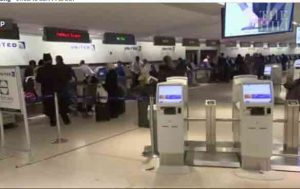
ANCHORAGE – Governor Bill Walker received notification from the U.S. Department of Homeland Security (DHS) Tuesday that Alaska has been granted an extension to compliance with the REAL ID Act until June 6, 2017. Governor Walker requested the extension and informed DHS of his intention to introduce legislation that removes barriers to the REAL ID Act in January. For the duration of the extension, federal agencies may accept Alaska driver’s licenses and state-issued identification cards for official purposes.
“While I am pleased that we received an extension to compliance with the REAL ID Act, this is not a permanent solution,” said Governor Walker. “Thousands of Alaskans who work in federal facilities and on our military bases will be impacted when these rules are finally enforced. It is absolutely critical that the legislature take up this important issue and make the necessary changes to state statute this year.”[xyz-ihs snippet=”adsense-body-ad”]
In 2008, the Alaska Legislature passed a law prohibiting the use of state funds to implement the REAL ID Act. While the Alaska Division of Motor Vehicles (DMV) has implemented best practices to prevent driver’s license fraud and qualify the state agency for compliance extensions, federal officials have warned this will not continue in the future. In a letter sent to Governor Walker last week, DHS said further extension requests may be denied if the Legislature fails to act on Governor Walker’s legislation during the upcoming session.
Governor Walker’s proposed legislation will allow the DMV to issue both REAL ID Act compliant and non-compliant identification cards and driver’s licenses—giving Alaskans a choice.
If the state is not REAL ID Act compliant by June 6, 2017, Alaskans will be required to present a passport or other federally issued ID to get on military bases or other federal facilities. This requirement affects businesses, schools, and families in Anchorage and Fairbanks who need access to the military bases in those communities. If Alaska is not compliant with the Act by January 22, 2018, all residents will have to present a passport or alternative ID acceptable to TSA to board a commercial flight.
[xyz-ihs snippet=”Adversal-468×60″]
